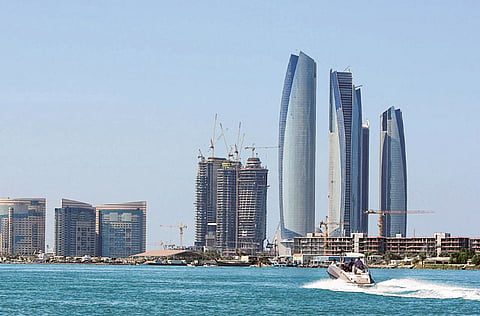UAE jumps seven spots in global competitiveness ranking
Country is one of only three in the region to make progress in World Bank ranking

Dubai: The UAE has moved up seven ranks in this year’s edition of The World Bank’s Ease of Doing Business Report 2013, moving from the 33rd to become 26th globally, making it one of only three countries in the Middle East and North Africa region that have had positive improvements in global competitiveness ranking.
“Real competitive economies drive economic prosperity to its people,” said Abdullah Lootah, Secretary General of Emirates Competitive Council. “Federal and local government entities in the UAE have been exerting a great amount of effort to enhance processes and boost productivity and efficacy for the purpose of offering better service to the public."
“This acknowledgement by the global community is a recognition that the UAE is on the right path to achieve UAE Vision 2021 which is to be among the best countries in the world by 2021.” Lootah added.
“We are delighted with the advanced rank the UAE has achieved in the Ease of Doing Business Report. This accomplishment is a reflection of our ongoing efforts to create a supportive environment that encourages growth, attracts investments, and therefore become more profitable and successful,” said Abdulla Al Shaibani, Secretary-General of the Dubai Executive Council. “We work very closely with all our partners in both public and private sectors to achieve our strategic objectives in making Dubai and the UAE a global hub for business.”
This year, 10 indicators are used by the Ease of Doing Business Report to analyze economic outcomes and identify what reforms of business regulation have worked, where and why. Regulations affecting areas of the life of a business covered areas such as Starting a Business, Dealing with Construction Permits, Getting Electricity and Registering Property.
The Ease of Doing Business Report 2013 states that many decision makers —particularly in policy-making circles and in the private sector, who use the data in the report, associate better performance on the indicators used in the reports with greater inflows of foreign direct investment (FDI).
Since the launch of last year’s report nearly 2,000 articles in the international press have drawn a connection between FDI and Ease of Doing Business Report. Such articles often suggest that higher rankings will be associated with more foreign investment, which is believed to create jobs, bring in new technologies and processes and have other beneficial collateral effects on the real economy.
First published in 2003 with 5 indicator sets measuring business regulation in 133 economies, this year marks the 10th edition of the Ease of Doing Business report. Today, the report has grown into an annual publication covering 185 economies around the world.



